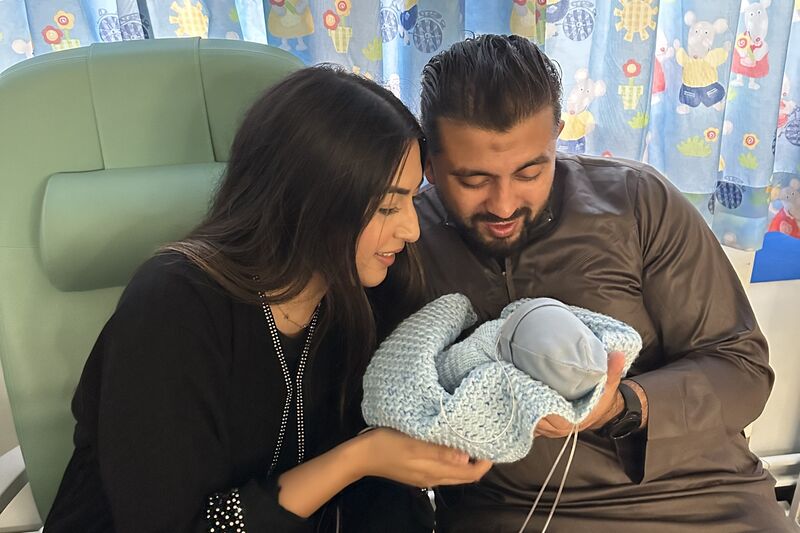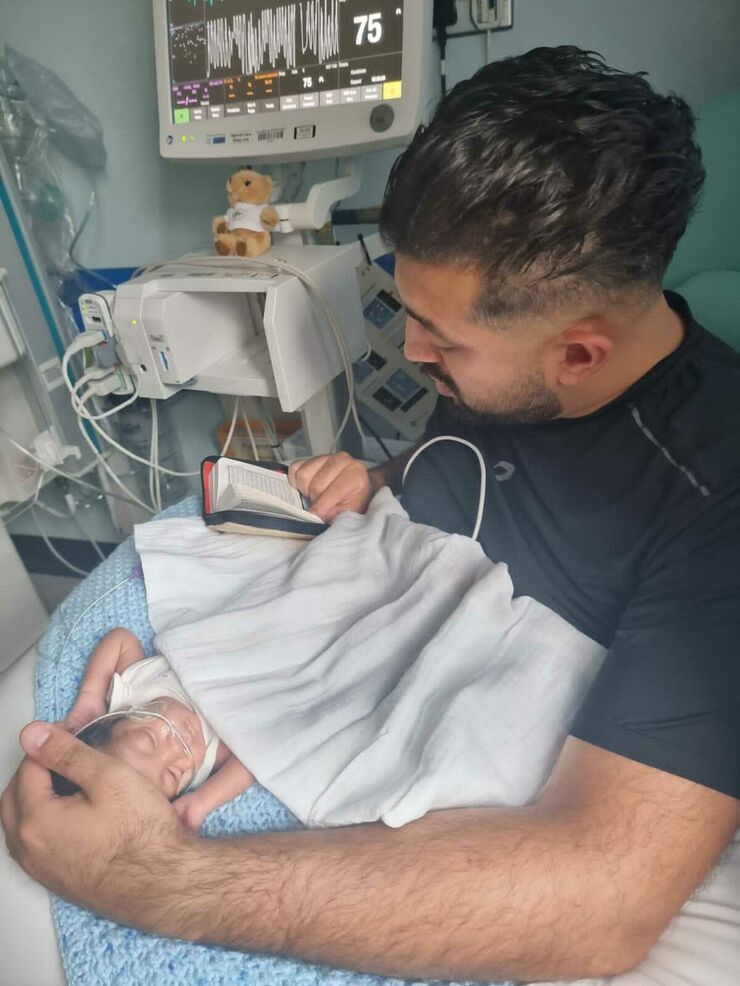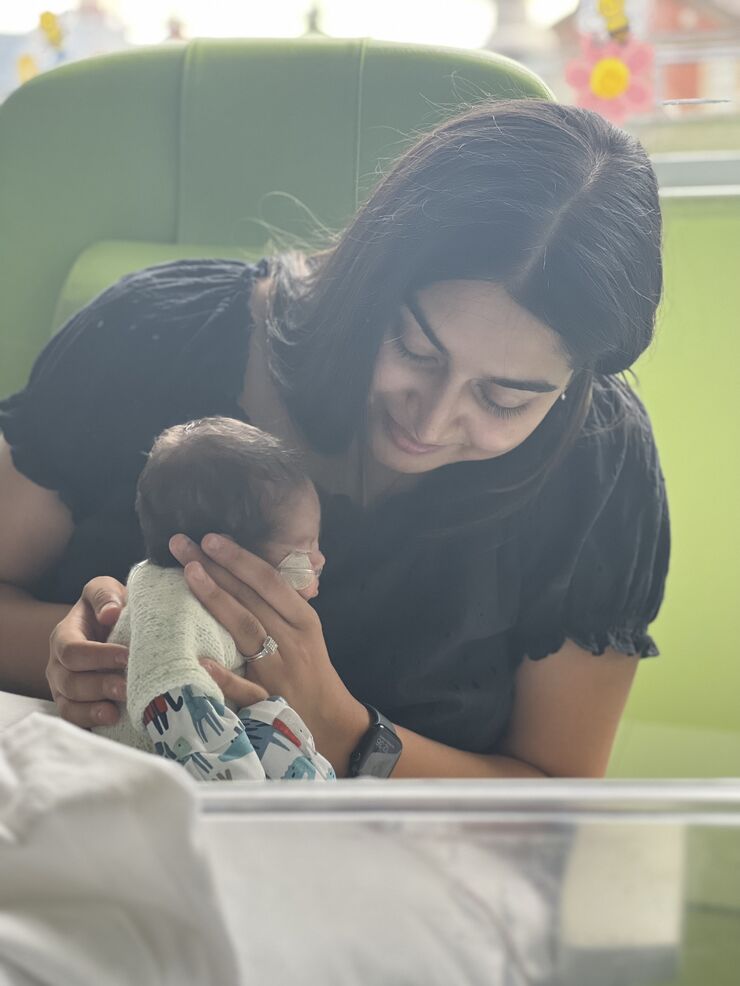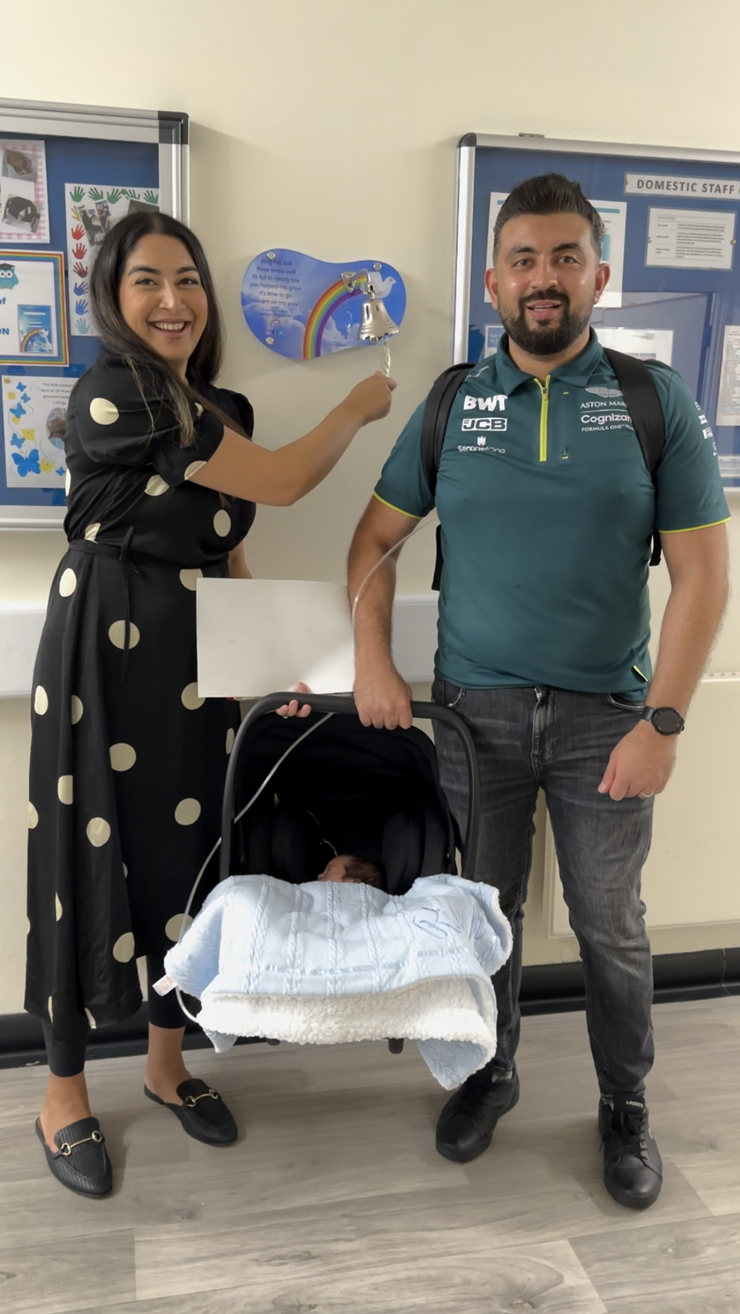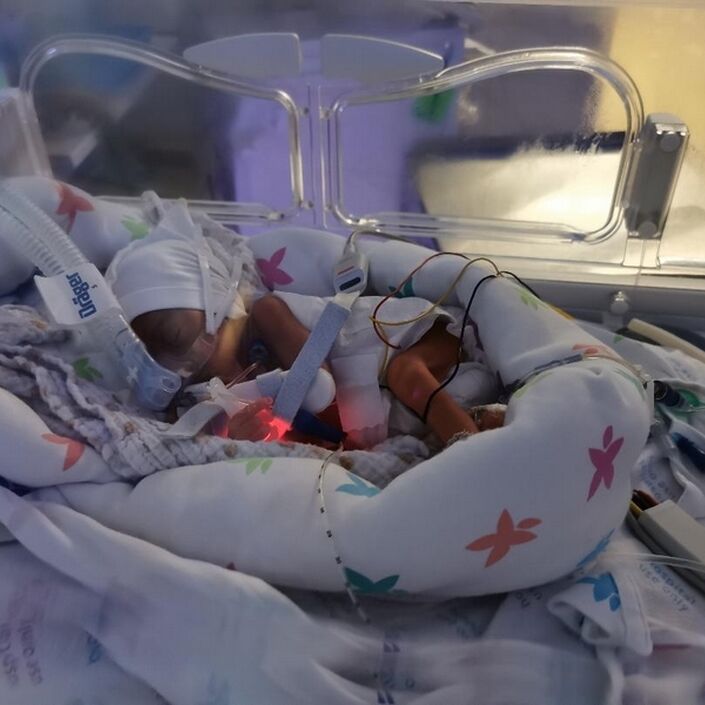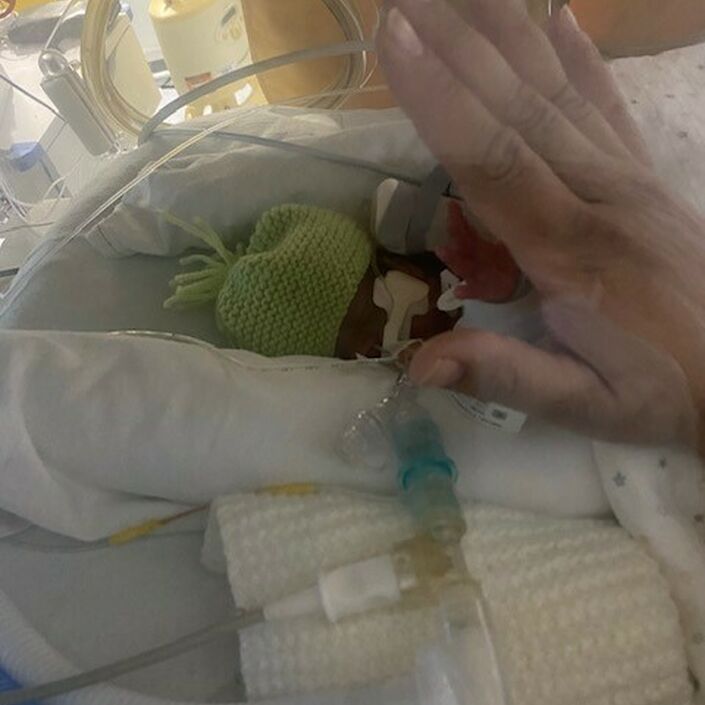When we first went into NICU, it was an eerie feeling - all the lights were dim, and there were incubators everywhere with monitors making beeping noises. We knew that in the next few months we would have a battle on our hands. It was bittersweet because our baby had arrived and he was okay, but we were still overwhelmed because he looked so unwell.
What helped us most was the communication that Wasim and I had at the time – we were very open and supportive of each other. What carried us through was being positive every single day. Even when there were setbacks, we thought - how do we overcome this?
As parents, you'll have good days and bad days. It's how you overcome moments of disappointment, as sometimes the consultants might tell you certain things you don't want to hear. Not every day is going to be an easy ride.
For parents, we would say try to be positive, whether you're a firm believer in a supreme being or not. Our faith helped us a lot - we never wanted to question why this happened to us, but how are we dealing with this?
We always say we'd never change our journey, even though we did miss out on some things. Wasim never got to cut the umbilical cord and I never got to do skin-to-skin straight away. There are some moments where we wish we had a more normal birthing experience, but then again, we got to meet Riyadh three months early.
You do need to be emotionally strong because every baby in the neonatal unit is on their journey. We used to spend at least eight to nine hours a day in the hospital sitting by Riyadh’s incubator. We made really special friendships with other parents in the unit because we were sharing this journey.
Most of the day, the nurses would leave us to it and we would take control of Riyadh’s care.
Neither of us had held a newborn baby before Riyadh was born, and even if I had Riyadh at full term, I'd still be terrified to change a nappy, never mind on a 27-weeker. But it gave us so much strength and we wanted to be as involved as we could be.
Riyadh faced many medical battles in NICU. When he was first born, they identified he had E. coli in his eyes and later in his belly button. The medical staff rang us at about 11 p.m. and our hearts dropped because we didn't want to see him go through any more procedures. They thought that the bacteria had travelled up to his brain, so they needed to take spinal fluid by doing a lumbar puncture.
We prayed for Riyadh, and luckily, they didn’t need to do the lumbar puncture in the end.
The next hurdle was that Riyadh’s septum had ripped completely as a side effect of the CPAP. The team said they would have to call a tissue specialist which might require another procedure. Luckily again, his septum grew back.
Some moments in our neonatal journey were so stressful. At one point, I was so worried that I couldn't express. I cried to Wasim, and the nurses said we could either give him formula or donor milk.
Wasim and I are Muslim, so from a religious point of view, we had to find out if giving Riyadh donor milk was acceptable. In our religion, due to kinship ties, we need to know where the donor milk comes from. It can be difficult for our community in NICU as there are certain barriers or obstacles that we have to overcome.
In the end, we consulted a religious figurehead, but after some assurance from the staff at the hospital and giving myself a bit more time, my supply gradually started to build back up. We continued with breast milk until the near end of our NICU stay as Riyadh wasn’t latching on well enough, and then went with combi feeding between formula and breast milk.
After four weeks, and just before Father’s Day in June, Riyadh moved over to special care. He was thriving and it was amazing. When we left NICU, the other parents were all clapping as we wheeled him out. It was such a good moment because we all said to each other, we'll see you on the other side.
After two weeks we were transferred from Leicester Royal to Leicester General because Riyadh was stable, and because it is the nearest hospital to home. However, when he was in Leicester General we noticed that Riyadh had become unwell again.
His face was filled with a lot of fluid and we noticed that on the monitor, his respiratory rate was in the hundreds, around 180 or 170. He was working so hard to breathe and his head was bobbing. The nurses put him on his front, then on his side. He was just staring at us with these eyes and I remember the monitor wouldn't stop beeping. My husband said, “I know something is wrong.” He instinctively knew that Riyadh needed help.
Over time, what became apparent was that Riyadh had developed chronic lung disease and needed respiratory support. It was terrifying. That night we went home and the next morning they rang us to say Riyadh was being moved back to NICU at Leicester Royal. I remember crying – it felt like such a backward step. Suddenly we were back to the start - Riyadh was back in an incubator but was so much bigger. It was heartbreaking to see.
At this point, we were so used to him in a cot with clothes on, but instead he was back in a nappy, in the incubator. It was a lot to take in. They explained to us later that Riyadh had fluid on his lungs, but his face was full too - he looked like he had eye bags.
He had also had a massive increase in weight and they couldn't put a finger on why he had such a drastic jump. When they did another x-ray, our consultants showed us how his lungs had been damaged. It became even more apparent after our second visit back to intensive care.
